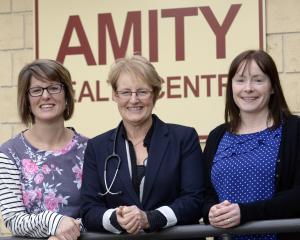Dunedin Hospital has closed 28 beds and issued its first ‘‘code black alerts'', as it struggles to cope with nursing shortages.
The beds, in the older people's health and medical service wards, were likely to remain closed until mid-April, a senior manager said.
Otago District Health Board operations manager Megan Boivin said the hospital had been on code black on Monday and Tuesday and yesterday was back to ‘‘code red'', the next level down.
The hospital discharged about 57 patients on Monday as it struggled to make more room, Mrs Boivin said.
The hospital has been on code red more than 50% of the time since the coding system was introduced last September.
Patients were not discharged if medically unfit, but some out-of-town patients might be discharged to motels, or older patients to rest-home long-stay hospitals.
The sixth-floor older people's health wards closed four beds before Christmas, another four in January and another four late last week. The two internal medicine wards on the eighth floor have eight to 16 beds closed at any one time.
Significant nursing vacancies and long-term sick leave are blamed for the bed closures. The hospital has about 60 vacancies for nurses, with more than half of these in mental health and community services.
The recruitment of 23 new graduates would relieve some pressure, Mrs Boivin said. New graduates underwent a three-week orientation when they began employment and could only perform limited duties during their first year, she said.
‘‘By mid-April, subject to not taking any more resignations, we believe we will be able to reopen the beds.''
New Zealand Nurses Organisation Dunedin organiser Lorraine Lobb said the staffing situation at the hospital had been bad for at least 12 months and appeared to be getting worse rather than better.
Nursing shortages were a worldwide problem. Mrs Boivin said contingency plans included older people's health wards 6A and 6B now being run as one ward so staff could work across both.
Senior medical staff were working through processes to determine which older health patients could be admitted to Wakari Hospital's rehabilitation ward, usually solely for people younger than 65.
Some patients were going home, with support from district nurses, and some were being transferred back to rural hospitals, Mrs Boivin said











